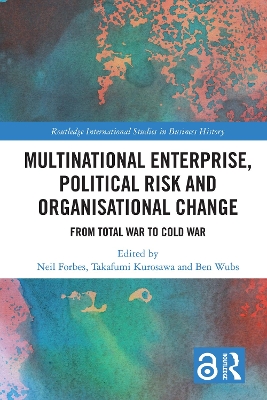Routledge International Studies in Business History
1 primary work • 2 total works
Book 13
This book deals with the activities of the Anglo-Dutch multinational during the war. Given the various threats faced by Unilever during the Nazi period, Ben Wubs argues that it was not self evident that the company would survive the war. Based on research into company sources which were hitherto unavailable, he shows the effect of the war on Unilever as well as the changing conditions in the European food, oil and fats and soap industries.
Wubs makes an analysis of the company's strategy, structure and performance in this period. Simultaneously, it explores the external conditions, which helped the company to survive the war. The author argues that Unilever survived World War II because the group had prepared itself legally well in advance. As a consequence, the company could easily be split in two autonomous parts. Unilever's highly decentralized operating structure helped the company to survive the ambitious of the Nazi State. The deteriorating war conditions for Nazi Germany eventually worked to the advantage of the company. Besides, Unilever's innovative attitude helped the company to adapt to completely new conditions of resource allocation.
Multinational Enterprise, Political Risk and Organisational Change
by Neil Forbes, Takafumi Kurosawa, and Ben Wubs
Hitherto, the organization of international business has been studied mostly from a managerial point of view or by examining the relationship between firms and the economy. Yet, the development of the modern, multinational firm - the most important type of business organisation - has been strongly influenced by the conflicts that bedeviled the twentieth century. The volatile macroeconomic and political environments experienced by international business point to how important it is to study political risk. Consequently, Multinational Enterprise, Political Risk and Organisational Change: From Total War to Cold War breaks new ground: it argues that non-market elements and historical context are key to understanding the way international business has been organised. This edited volume offers an historical approach to analysing how multinational enterprise has developed over time and around the world, through a series of well-crafted chapters, on important topics in international economic and business history, written by authorities in their respective fields of study and research. The study is based on the underlying premise that the coming of the two World Wars, the devastating and long-term consequences of such total wars, and the ideological challenge of the Cold War acted as a pivot points in shaping the nature and character of multinational firms. By examining such phenomena, this study offers insights to anyone who has an interest in business, economic or political history, management and business studies, or international relations.
Chapter 1 of this book is freely available as a downloadable Open Access PDF at http://www.taylorfrancis.com under a Creative Commons Attribution-Non Commercial-No Derivatives (CC-BY-NC-ND) 4.0 license.

